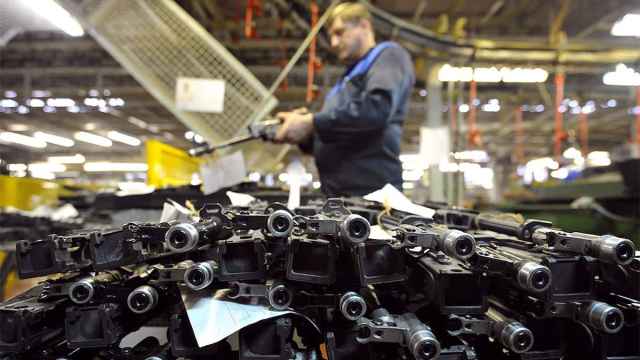Severstal, billionaire Alexey Mordashov's steelmaker, may derive 14 percent of next year's earnings from the United States, according to Morgan Stanley.
North America and PBS Coal may account for 14 percent of group earnings before interest, tax, depreciation and amortization, or EBITDA, in 2012, Dmitry Kolomytsyn, a Moscow-based analyst at Morgan Stanley, wrote in a note after a visit to the company's U.S. plants.
Severstal will increase rolled steel production in North America by 35 percent in 2012 after an expansion at its plant in Columbus, Mississippi, Kolomytsyn said. The mill, which added 1.6 million tons of capacity last month, started direct sales to automakers in the third quarter, he said.
After selling mills in Maryland, Ohio and West Virginia earlier this year due to slowing demand, Severstal is opening new units at its remaining sites to increase output of higher-value steel products. The company is targeting a margin of 10 percent on EBITDA through 2016 in the United States, Mordashov said in October.
Columbus is seeking to increase the proportion of sales to automakers to 17 percent in three to five years from 7 percent in 2010, Kolomytsyn said. It's already qualified for sales to Ford and General Motors. "Nissan, BMW, Volkswagen, Chrysler and Mercedes Benz's qualifications are expected shortly," according to Morgan Stanley.
PBS Coal, bought in 2008, will generate $200 million of EBITDA next year after increasing production and reducing cash costs, Kolomytsyn said.
The company plans to boost production to 4 million tons of coal in 2012 from 3.4 million tons in 2011 and to reduce costs to $85 a ton from $97 a ton this year, according to Morgan Stanley. Separately, PBS Coal plans to start exports to China, Kolomytsyn said.
Severstal is expected to post overall EBITDA of $3.62 billion next year, according to the report.
A Message from The Moscow Times:
Dear readers,
We are facing unprecedented challenges. Russia's Prosecutor General's Office has designated The Moscow Times as an "undesirable" organization, criminalizing our work and putting our staff at risk of prosecution. This follows our earlier unjust labeling as a "foreign agent."
These actions are direct attempts to silence independent journalism in Russia. The authorities claim our work "discredits the decisions of the Russian leadership." We see things differently: we strive to provide accurate, unbiased reporting on Russia.
We, the journalists of The Moscow Times, refuse to be silenced. But to continue our work, we need your help.
Your support, no matter how small, makes a world of difference. If you can, please support us monthly starting from just $2. It's quick to set up, and every contribution makes a significant impact.
By supporting The Moscow Times, you're defending open, independent journalism in the face of repression. Thank you for standing with us.
Remind me later.





